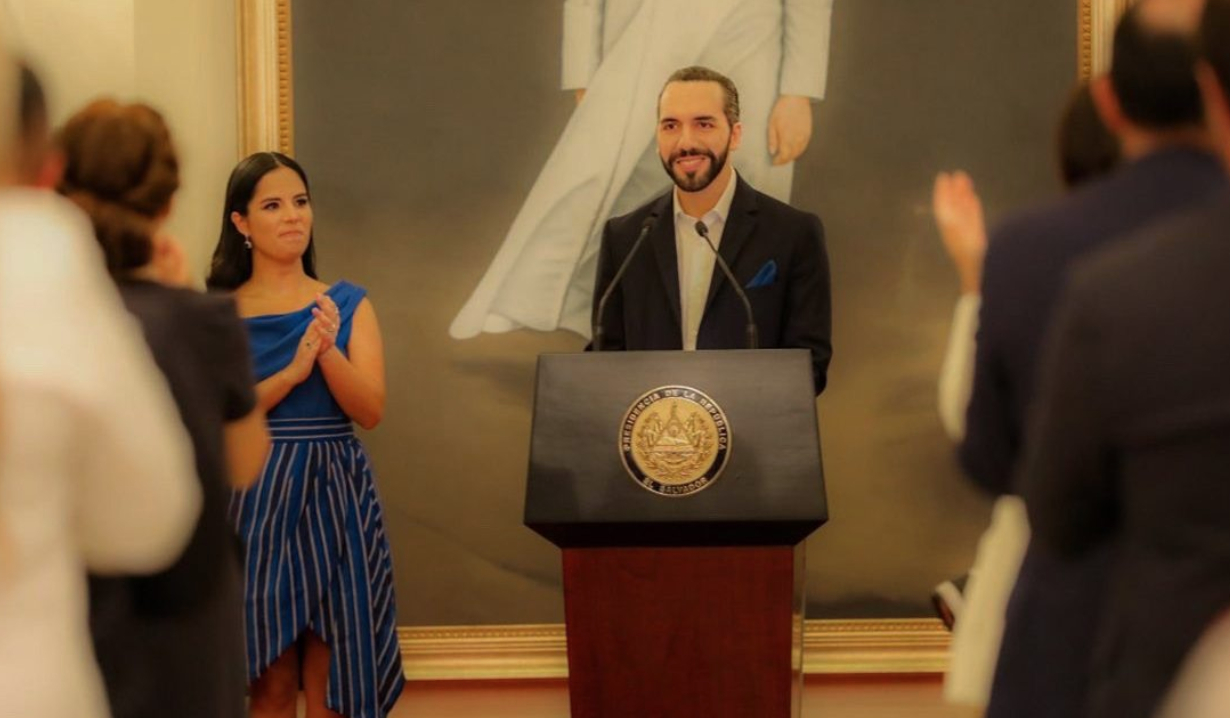The president of El Salvador, Nayib Bukele, recently announced what was expected of him more than a year ago: that he will run for reelection in 2024. With this announcement, the most popular president of the American continent approaches the pantheon of Latin American leaders who circumvented the constitutions of their countries to govern for longer and lays the groundwork to join the long list of caudillos that the region has given birth to since the 19th century.
Bukele understands the times very well. In September last year, the magistrates of the Constitutional Chamber of the Supreme Court that he appointed a few months before returned the favor by authorizing him to be reelected, despite the fact that it is expressly prohibited by articles 88, 152, 154, and 248 of the Constitution. The jurists argued that non-reelection is “tying up the popular will” and “an excessive restriction disguised as legal certainty.” At the time I published an article claiming that it was all a move by Bukele to retain power. The magistrates were chosen by Bukele after the president used his majority in the Legislative Assembly to remove the members of the Constitutional Chamber and the attorney general in May 2021. Given the evident political subordination of the Judicial Branch to the president, it is to be expected that the Supreme Court will never put time limits on Bukele.
At the time, the president had the finesse to omit his opinion on reelection, which allowed him to identify critics and weigh the challenges to his move. He waited a year to announce his intention to run for the 2024-2029 term. And he did so with a studied staging, while celebrating the country’s independence. “After 201 years, we are finally living true independence. For the first time we have real freedom. Now we do have sovereignty, and we have demonstrated it,” he said from the official residence, on radio and television, in a ceremony where the other heads of state were also present.
In the absence of a crisis, Bukele would be reelected even playing the ukulele. Since he took office as president in June 2019, his popularity has never dropped below 75% and is usually above 85%: in July a Gallup poll revealed an approval rating of 86%, the same percentage that a poll by the newspaper La Prensa Gráfica gave him a month earlier.
In addition to clearing time limits to his mandate, Bukele leads a government that is democratic only in form. While elections are held, the president controls all three branches of government and has politicized the military and police. The democratic façade is unlikely to fall as long as Bukele remains popular.
The government is currently engaged in a bloodthirsty fight against gangs. At the end of the month, the country will complete six months under emergency rule, which has allowed the imprisonment of more than 50,000 people without warrants and under the arbitrary discretion of police and military. It is estimated that more than 70 of these detainees have already died without having faced justice.
Regional tradition
Bukele boasts of novelty: he is young, tweets, and legalized cryptocurrencies as a means of payment. But he is also part of a long Latin American tradition known as continuism, where the incumbent president seeks to change, circumvent, or reinterpret the constitution to retain power. According to my data, collected from both presidential biographies and constitutions, between 1945 and 2021, 36 presidents from all Latin American countries (except Mexico) and under all political regimes-democracies, semi-democracies, and dictatorships-attempted to extend their term in office 48 times. They succeeded 35 times.
Historically, continuism has not fared well in El Salvador. The last to be reelected was dictator Maximiliano Hernández Martínez, who was induced to resign by a military uprising in 1944, while Salvador Castañeda was removed by a military coup in 1948 when he tried to extend his term.
Although many presidents who extend their terms end badly, fugitives from justice like Ecuador’s Rafael Correa, in jail like Peru’s Alberto Fujimori, or forced to resign like Bolivia’s Evo Morales, those who manage to govern for several years tend to leave a strong mark on their countries.
Many of them become caudillos. This concept was initially used to describe authoritarian leaders of great political and military power who ruled or opposed governments after independence in the region. But “strongmen” have never ceased to exist in Latin America – just look at the current dictators Ortega in Nicaragua and Maduro in Venezuela – always at the cost of sabotaging the progress of their countries.
Frequently, these caudillos lead to democratic breakdowns. That is what happened in Argentina, Honduras, Peru, and Venezuela, when they went from being semi-democracies to dictatorships under Juan Domingo Perón, Tiburcio Carías Andino, Alberto Fujimori, and Hugo Chávez, respectively. That is precisely the direction in which President Bukele is taking his country.
What is the profile of these leaders? In a study, I will soon publish in the Journal of Politics, I show that presidents with a more dominant personality and little political experience are more likely to try to retain power beyond what the constitution says. In a preceding study, I examined the potential causal relationship between the Big Five personality factors – openness to experience, responsibility, extraversion, agreeableness, agreeableness, and neuroticism – of presidents and their attempts at continuance. I found that leaders who tend to be more open to experience, more neurotic, and less responsible are more likely to try to retain the premiership. Likewise, presidents are more likely to try to extend their terms when they have strong legislative powers, lead new parties, immediate reelection is prohibited, and the high courts are not fully independent. Almost all of these contextual variables have been present in Bukele’s case, making it easier for him to screw himself into power.
Translated from Spanish by Janaína Ruviaro da Silva











